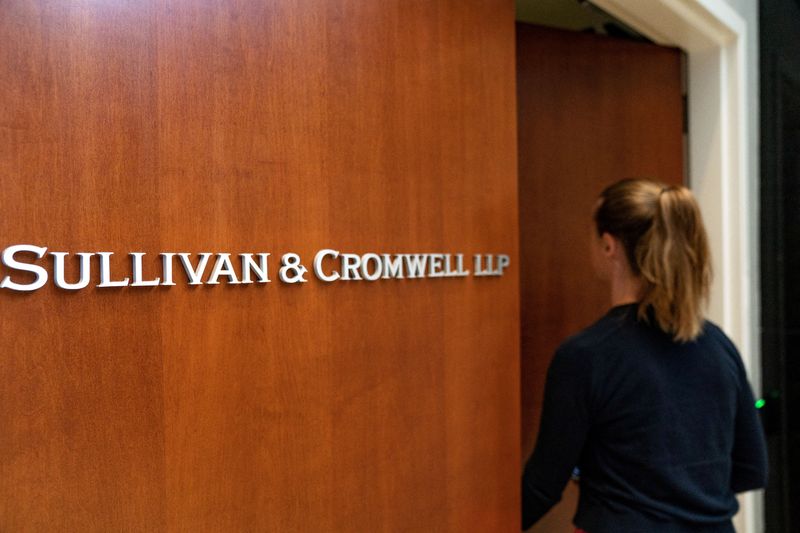By Dietrich Knauth
NEW YORK (Reuters) - FTX's bankruptcy lawyers at Sullivan & Cromwell were not complicit in the fraud that caused the crypto company to collapse, a court-appointed examiner concluded on Thursday.
Former FTX CEO Sam Bankman-Fried was convicted in November of stealing $8 billion from FTX customers. FTX creditors and investors had accused the company's lawyers at Sullivan & Cromwell of failing to stop the fraud while positioning themselves for a lucrative position as the company's primary bankruptcy counsel.
An independent bankruptcy court investigation by former prosecutor Robert Cleary found no evidence that the law firm knew about the fraud or ignored any "red flags" when it performed pre-bankruptcy work, such as assisting FTX with regulatory filings and a failed buyout of crypto lender Voyager Digital.
"Sullivan & Cromwell remains confident in our pre-petition work for FTX and the commencement of the Chapter 11 cases, and we welcome the examiner's findings to date rejecting various baseless allegations about our work for FTX," the law firm said in a statement.
The U.S. Trustee, a Department of Justice bankruptcy watchdog, had demanded an independent investigation into fraud and mismanagement that occurred at FTX before its collapse, saying it was "too important" to leave to creditors and current management.
The office of the U.S. Trustee declined to comment.
Sullivan and Cromwell attorneys made false statements to outside parties while doing that work, but they did not know at the time that the statements were untrue, Cleary found.
For example, Sullivan & Cromwell partner Andy Dietderich told Voyager Digital on Nov. 7 that FTX's finances were "rock solid" and that questions about FTX's ability to close the deal were just "silliness" based on rumors spread by a rival bidder, Binance.
That same day, however, FTX's Bankman-Fried was desperately trying to raise emergency financing, and FTX went bankrupt four days later, according to Cleary's report.
Some FTX creditors had unsuccessfully sought to block Sullivan & Cromwell from representing FTX in its bankruptcy, due to its previous ties to the company, including the fact that FTX's former U.S. general counsel, Ryne Miller, was a former partner at Sullivan & Cromwell. FTX investors have also sued the law firm, accusing it of abetting Bankman-Fried's fraud.

The firm has charged more than $180 million for its work on FTX's Chapter 11 from November 2022 until January 2024, according to court documents.
The bankruptcy judge overseeing FTX's case had initially rejected the U.S. Trustee's demand for an examiner as duplicative and costly, but was overruled on appeal.